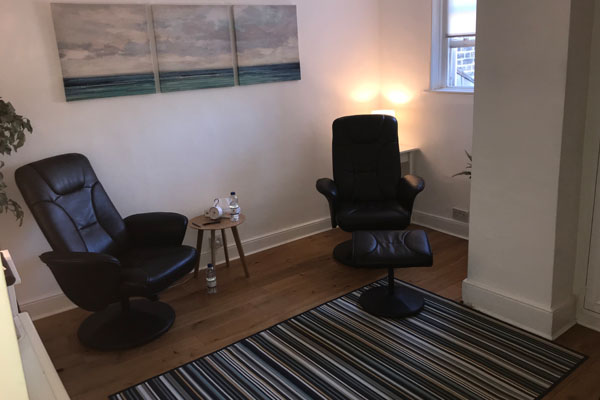Depression Treatment on Harley Street
Neil Drew, one of the UK’s leading Hypnotherapists and Psychotherapists can help to free you from your depression. He is currently taking bookings for online therapy sessions and will help promote better mental health.What is Depression?
Most people during their lives will feel sad or depressed at times. It’s a normal response to things or experiences that are sad, hard or out of our control. But depression is more than simply feeling sad or fed up for a few days.
A lot of the time people aren’t aware that they may have depression; they experience a low mood and a gradual withdrawal along with negative emotional reactions to people who they are close to or work with until eventually, they seek a diagnosis for their mental state.

Generally, people go straight to their doctors to receive a diagnosis and nearly all will be prescribed with medication, counselling or CBT. Whilst medication will help relieve symptoms and negative emotions, counselling will allow you the opportunity to understand the issue and develop better-thought patterns.
Common Depression Symptoms & How to Manage Them
Depression is something that generally creeps up on you, it builds until either you or someone close to you recognises how much you have changed, by the time you finally recognise that you are no longer yourself, the depression is usually well established.
Depression also affects people in different ways and can cause a wide variety of symptoms.
It is not advised to use this list as a form of self-diagnosis, nor should you experience all of these symptoms to be classed as having depression. In all cases, if you suspect you may be suffering from depression, seeking your doctor’s medical opinion first to rule out any physical issues as the cause is the best option. Once you have confirmed it is an issue of the mind and the emotional system then together we can set about resolving it.
Continuous Low Mood
The most common symptom of depression is a continuous low mood or sadness that lasts for many days to weeks. Alongside this, you may be feeling worthlessness, self-hate, or inappropriate guilt.
Feeling Hopeless
Common recurring thoughts of depression tend to be along the lines of ‘it’s all my fault’ or ‘what’s the point’ and you may be left with a hopeless or helpless outlook on your life.
Lack of Motivation
Depression can take the pleasure or enjoyment out of the things you love or that you normally complete on a day to day basis. You may find that tasks such as cleaning or working may take a slide.
Feeling Anxious
Depression and anxiety are very closely linked and symptoms tend to overlap across both. Feeling depressed may exacerbate feelings of worry or anxiety.
Hypnotherapy as a Cure for Depression
The following video explains more about our hypnotherapy sessions and what to expect when attending one.
Your journey to recovery starts with a phone call where we can discuss in confidence your issues and book an initial consultation. Feel free to call me on my landline or mobile and leave me a message if I cannot get to my phone.

Hypnotherapy for Depression
For almost two decades I have been using a specialised field of hypnotherapy to get to the bottom of and uncover the causes of depression in any individual. It isn’t the events of our lives that causes us our damage, those perceptions take place at an unconscious level, in other words, beyond our conscious awareness.
Each individual cause of depression, perceptions of self, negative thinking patterns, and all other negative aspects of developing depression are completely unique to them, as yours will be to you. Due to this, each person’s therapy will be unique, by combining one or more forms of therapy and using hypnotherapy as the foundation I can help you to uncover the unconscious causes and resolve your depression.
To date, I have accumulated some 30,000 hours of experience using these combined forms of therapy which has hypnotherapy at the centre of your therapy. My vats range of qualifications and years of experience ensure you that you are in good hands.
